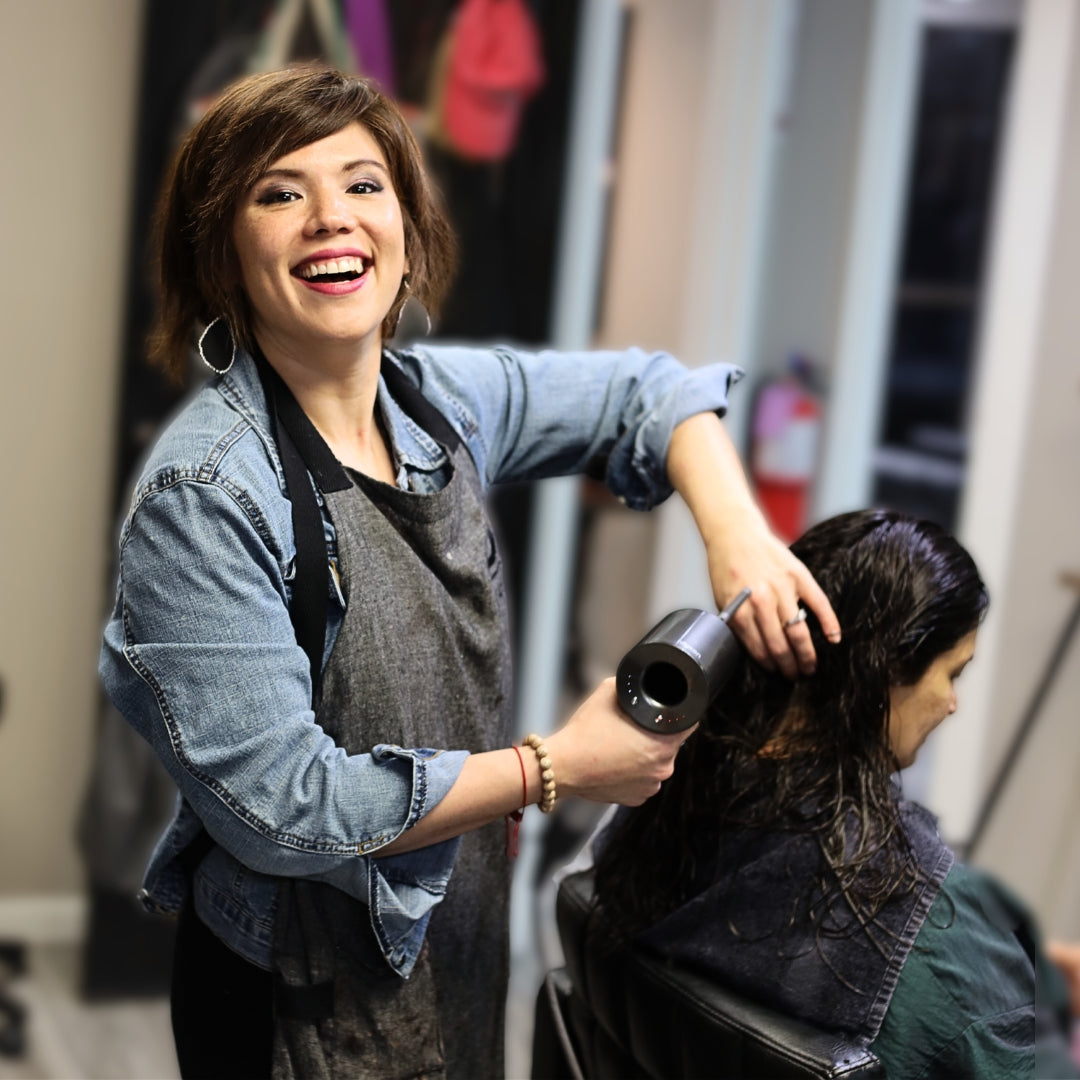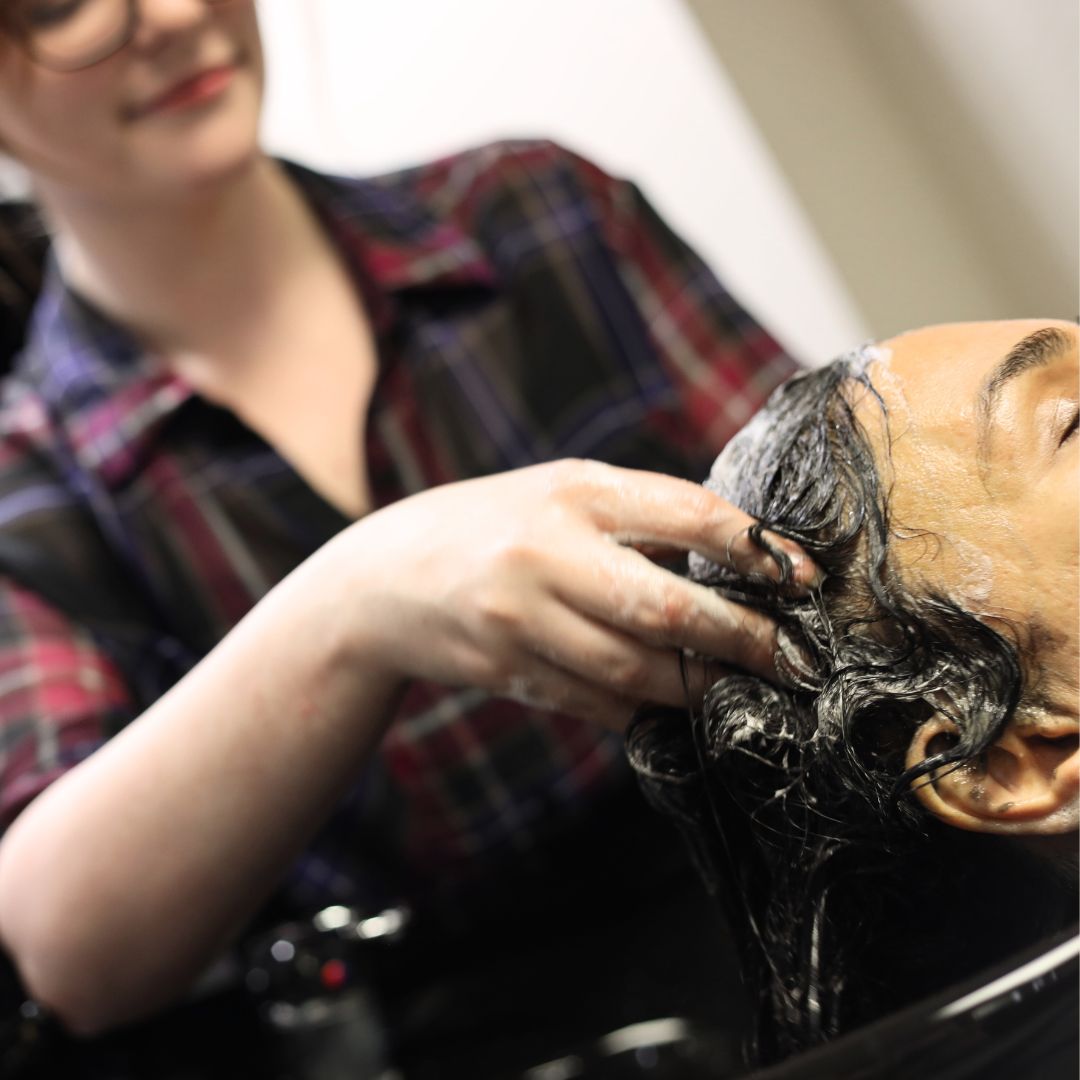Unhealthy Scalp: Red Flags to Watch Out For and How to Treat Them
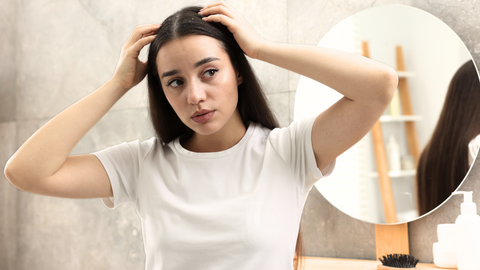
An unhealthy scalp can significantly influence hair growth and retention, signaling the importance of addressing scalp conditions before they escalate. Factors like oxidative stress, which is prevalent in conditions such as seborrheic dermatitis and dandruff, contribute to premature hair loss by damaging the scalp. Moreover, Malassezia, a commensal organism on the scalp, exacerbates oxidative damage, further endangering hair health. Understanding these red flags and their underlying causes is crucial for maintaining a healthy scalp and luscious hair.
Incorporating hair care products that counteract Malassezia's harmful effects, such as products that contain Zinc PCA — this ingredient helps to reduce oiliness from the scalp. Zinc Pyrithione has anti-fungal and antibacterial properties. It can effectively target and eliminate the fungi and bacteria responsible for dandruff, scalp itchiness, and flaking. Zinc Coceth Sulfate ND, is a mild surfactant that will not damage or hurt the hair. These can be found in a lot of our scalp care shampoos. If you suffer from any scalp conditions it is key to use products that contain any of the zinc that is mentioned above to ensure a healthy scalp. It has been shown to reduce hair loss through various assessment methods. Regularly applying these products, alongside effective scalp treatments and exfoliation techniques, can fortify hair preservation efforts. Whether combating hair loss, managing dandruff, or seeking preventative scalp treatment, acknowledging and addressing signs of an unhealthy scalp can pave the way for both improved scalp health and hair vigor.
Signs of an Unhealthy Scalp
Recognizing the signs of an unhealthy scalp is pivotal in maintaining not just scalp health but also the overall vitality of your hair. Here are some key indicators to watch out for:
- Itchiness and Flakiness: Experiencing itchiness or noticing flakes on your scalp could signal conditions such as dandruff, caused by seborrheic dermatitis, or reactions to certain hair care products, indicating the need for a change in your hair care regimen.
- Redness and Sensitivity: If your scalp shows signs of redness or feels sensitive, it might be reacting to harsh chemicals in hair products, sunburn, or could be an indication of skin conditions like psoriasis or eczema. Such symptoms demand immediate attention to prevent further damage.
- Hair Loss and Thinning: Witnessing unusual hair loss or thinning can be alarming. This could be a result of telogen effluvium, which is often triggered by stress, hormonal changes, or nutritional deficiencies. It's a clear sign that your scalp's health is compromised and needs intervention.
Each of these symptoms not only affects your scalp's health but can also impact your hair's appearance and growth. Addressing these signs promptly with the appropriate scalp treatment can help restore your scalp's health, ensuring lush and healthy hair growth.
Understanding the Causes
Understanding the myriad causes behind an unhealthy scalp is crucial for targeted treatment and prevention. The factors influencing scalp health are multifaceted and often interlinked, showcasing the complexity of hair and scalp care:
Genetic and Hormonal Influences:
- Genetics play a pivotal role in conditions like male pattern baldness and seborrheic eczema, highlighting the hereditary aspect of scalp health.
- Hormonal imbalances, including those caused by thyroid disorders such as hypothyroidism and Hashimoto’s thyroiditis, significantly impact the scalp, contributing to conditions like alopecia areata and androgenetic alopecia.
Lifestyle and Environmental Factors:
- Stress, diet, and lifestyle choices directly affect scalp health, with stress and poor diet leading to conditions such as telogen effluvium and dandruff.
- External factors, including exposure to pollutants, UV rays, and aggressive hair care routines, exacerbate scalp issues and avoidance of the importance of a holistic approach to scalp care.
- Autoimmune diseases and infections, such as alopecia areata and tinea capitis, underline the health-related causes of scalp issues.
- Nutritional deficiencies, particularly iron deficiency, have a complex relationship with hair loss, emphasizing the need for a balanced diet and possibly supplementation to maintain optimal scalp health.
By addressing these varied causes, individuals can better understand and combat the factors contributing to an unhealthy scalp, paving the way for healthier hair and overall well-being.
The Impact of Diet and Lifestyle
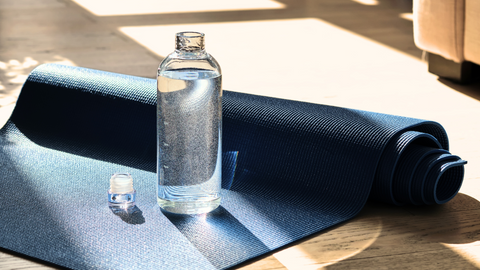 To maintain a vibrant and healthy scalp, it's essential to adopt a comprehensive approach that encompasses diet, lifestyle, and hair care practices. Here's how you can support your scalp's health through these avenues:
To maintain a vibrant and healthy scalp, it's essential to adopt a comprehensive approach that encompasses diet, lifestyle, and hair care practices. Here's how you can support your scalp's health through these avenues:- Essential Nutrients: Incorporate foods rich in omega-3 fatty acids, vitamins B6, B12, folic acid, and essential trace minerals like iron, magnesium, zinc, and biotin. Excellent sources include fatty fish, flaxseeds, walnuts, spinach, poultry, and fortified grains.
- Protein Intake: Aim for at least one serving of lean protein daily, choosing from fish, chicken, eggs, or soy products, to support hair strength and shine.
- Varied and Balanced Diet: Ensure your diet is diverse, including adequate protein, fruits, vegetables, and healthy fats to promote hair growth and prevent malnutrition.
- Hydration and Exercise: Drink plenty of water and exercise regularly to enhance circulation and scalp health.
- Sun Exposure and Scalp Care: Soak up moderate amounts of sun for vitamin D while protecting your scalp from excessive UV light. Use appropriate hair care products free from harsh chemicals. (If you know you will be out in the sun for a long period of time, use OWAY after sun hair bath. Or opt to use a hat or a sunset to keep your scalp protected!)
- Regular Exfoliation and Cleansing: Gently exfoliate and cleanse your scalp to remove dead skin cells and product buildup. Opt for hydrating and nourishing treatments to maintain scalp moisture. Use either the Oway Sebum Hair Bath or the Oway Purifying Hair Bath for Dry Scalps once a week to replenish your scalp.
- Scalp Massage: Regularly massage your scalp to stimulate blood flow and support nutrient delivery to hair follicles.
Adopting these practices can significantly contribute to a healthier scalp, paving the way for luscious and vibrant hair.
Recommended Treatments and Preventative Measures
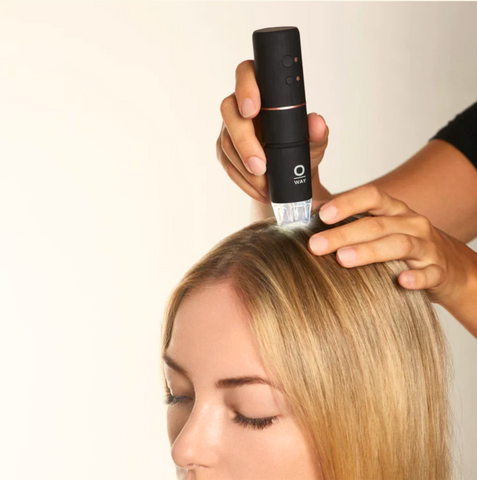 To ensure a healthy and vibrant scalp, it's crucial to tailor your hair care routine to address specific needs and prevent common scalp issues. Here's a comprehensive approach:
To ensure a healthy and vibrant scalp, it's crucial to tailor your hair care routine to address specific needs and prevent common scalp issues. Here's a comprehensive approach:
Scalp Care by Type: Note that, before you opt for new products, it’s important to determine what type of care your scalp needs. To do so, schedule a free Tricho-Derm assessment with us today!
- Sensitive/Dry Scalp: Opt for hydrating treatments and gentle shampoos. Regularly use scalp masks or oils to maintain moisture.
- Oily/Dandruff-Prone Scalp: Incorporate anti-fungal ingredients like ketoconazole or tea tree oil in your regimen. Use antidandruff shampoos, leaving them on for 5 minutes before rinsing.
- Scalp with Psoriasis/Eczema: Seek specialized treatments and shampoos formulated for these conditions. Regular consultation with dermatologists is advised for tailored treatments.
General Preventative Measures:
- Regular Cleansing: Wash hair based on your hair type and texture to remove buildup and maintain cleanliness.
- Gentle Handling: Use silk scrunchies, avoid harsh scrubbing, and opt for scalp-friendly styling tools.
- Protection: Apply SPF on exposed scalp areas or wear a hat outdoors to shield from UV damage. (If you choose to wear a hat, be sure to routinely clean the hat so as to not cause more damage to your overall scalp health).
Specialized Treatments:
- Scalp Massagers: Stimulate blood flow and remove product buildup.
- Exfoliation: Use products with lactic acid or salicylic acid to reduce flakiness.
- Professional Consultation: If experiencing persistent issues, consult a certified trichologist or dermatologist for a comprehensive analysis and treatment plan.
Final Thoughts
If you dream of healthy, luscious, shiny hair, you must address your overall scalp health! Fortunately, our hair healers here at Ippodaro Natural Salon specialize in scalp health. So please call us with any of your questions or concerns, and we can help guide you towards the next steps!


